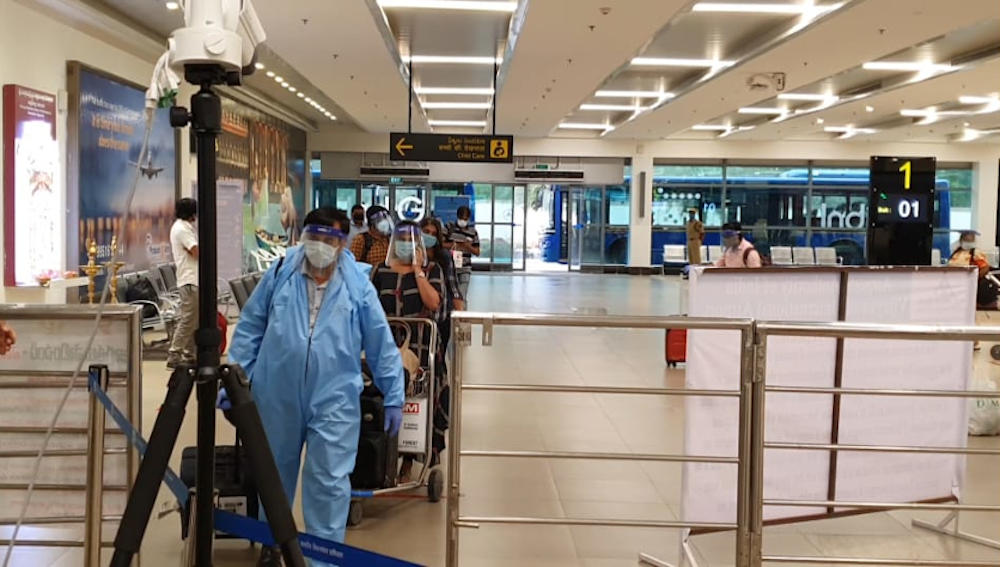A SCOTTISH company has unveiled a ‘track and trace system’ that uses facial recognition and thermal imaging to detect people with high temperatures and infection.
The system aims for mass screening in areas of significant footfall such as airports, hospitals, shopping malls, train stations and sports venues.
It means officials can automatically monitor high volumes of people for Covid-19 and take prompt action to isolate anyone with suspected symptoms.
The system is capable of scanning 30 people per second and will indicate those at higher risk of Covid-19 infection, so that they are swiftly detected and contained.

The technology was developed by Reddy Punna, the CEO of Edinburgh-based enterprise technology specialist Purview Services.
Reddy is himself a Covid-19 survivor, having been diagnosed the virus on a business trip to India and is currently unable to return to Scotland.
As a result, Reddy has focused on developing the facial recognition and thermal imaging technology whilst in India.
It has been successfully trialed and installed to monitor passengers’ temperature at Vijayawada and Rajahmundry Airports in the state of Andhra Pradesh, with further trials now underway at Bangalore Airport.
Reddy said: “Immediate protection from The Covid-19 pandemic requires compliance with test, trace isolate and protection strategies and we’ve done this through the development of our optical attendance and access system.
“The facial recognition and thermal imaging system can detect people’s temperature, the presence of a face mask and social distancing as they walk past the scanning technology at a rate of up to 30 per second and within a range field depth of 9 metres.
Those entering any venue with a raised temperature can be identified and then diverted to be helped by officials to stop any potential spread of Covid-19.
He added: “Containment through an attendance and access system with zero contact and temperature measurement can be a key to avoiding easy spread of the virus that can take place with a biometric access system.”